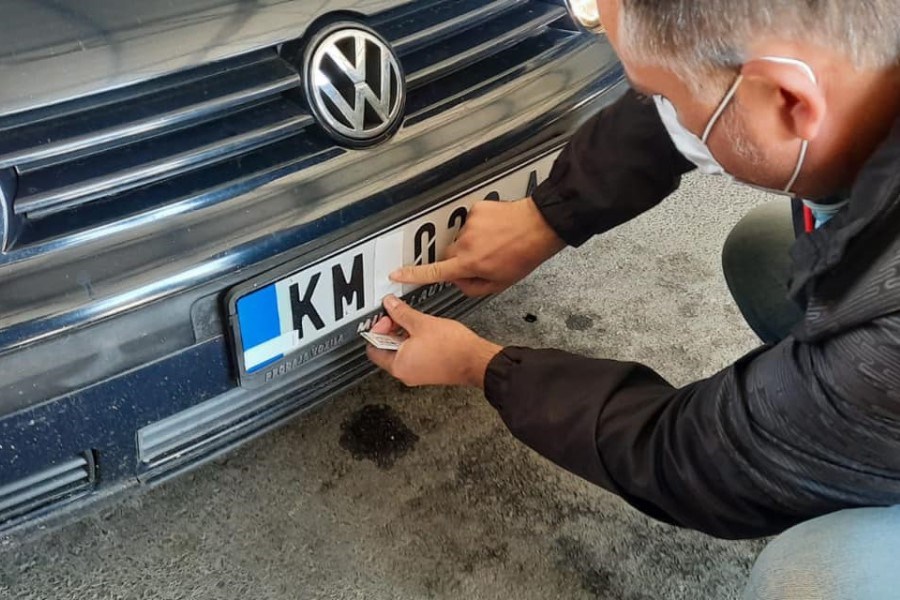Kosovo, Serbia reach deal on license plate, tensions put at ease
The deal stipulates that license plates with Kosovo denominations would no longer be issued and vehicles with Serbian plates would not be required to be re-registered.
-

A Kosovo license plate (Kosova Press)
Kosovo and Serbia have agreed to defuse tensions over Serbian car number plates, which could have been the point to trigger violence between the two nations.
In light of that, EU foreign policy chief Josep Borrell posted on Twitter: "We have a deal!" and assured the attempt for both to normalize relations after Kosovo declared independence from Serbia in 2008 - which is the main reason for tension, which Serbia does not recognize and encourages the Serb minority to remain loyal to Belgrade.
We have a deal!
— Josep Borrell Fontelles (@JosepBorrellF) November 23, 2022
Very pleased to announce that Chief Negotiators of #Kosovo & #Serbia under EU-facilitation have agreed on measures to avoid further escalation and to fully concentrate on the proposal on normalisation of their relations.
Before the talks in Brussels resulted in the agreement, Kosovo threatened to fine drivers starting Thursday if the use of Belgrade-issued number plates continued. The fines were to amount to €150 ($154).
As part of the deal, Borrell stated that license plates with Kosovo cities' denominations would no longer be issued by Serbia, and vehicles with Serbian plates would not be required to be re-registered by Kosovo.
After Kosovo rejected the EU's proposed deal on Monday, it resumed negotiations under pressure from the US, one of its key allies. Serbia's President Aleksandar Vucic held talks in Brussels on Monday with Kosovo Prime Minister Albin Kurti, through EU mediation.
Just earlier on Monday, Kurti cast blame on Borrell for failure to negotiate exact steps for an agreement on full normalization of relations with Serbia.
The BBC's Balkans correspondent Guy Delauney reported that the agreement mimics the EU proposal from earlier this week. Kosovo authorities want the Serb minority to give up their Serbian-issued plates, arguing that plates issued prior to the 1999 war of independence can no longer be valid.
The 50,000 Serbs in northern Kosovo only accept local Serb institutions and have been protesting against Kosovo's license plate policy, while Serbia insisted that cars crossing the Kosovo border carry Serbian-issued stickers on their Kosovan plates.
See more: Explainer: The Kosovo-Serbia tension
It is worth noting that Serbia and Kosovo reached an agreement in August on "freedom of movement" following weeks of tensions, even though 3,700 NATO peacekeeping troops are still deployed in Kosovo named the KFor force to avoid any flare-up in the province.
Both Serbs and Kosovo residents living in the northern part of the breakaway province will be able to freely move between Serbia and Kosovo using their existing ID cards, the EU's top diplomat Josep Borrell said in a statement, adding that the EU had "received guarantees from Prime Minister Kurti."
Last month, Russian Foreign Ministry Spokesperson Maria Zakharova called on Kosovo, as well as the EU and the US who back the Kossovo authorities, "to cease provocations and respect the rights of Serbs in Kosovo."

 3 Min Read
3 Min Read










